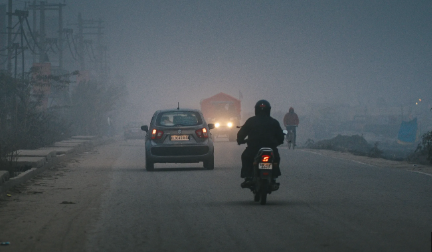
Introduction
North India is grappling with a severe cold wave as temperatures plummet, leaving residents braving biting cold conditions. The region has witnessed dense fog and icy winds, causing travel disruptions and forcing authorities to issue advisories. The Delhi Airport has advised passengers to check their flight status due to visibility issues. The India Meteorological Department (IMD) has predicted that the cold wave will persist for several days, urging people to take precautions.
Impact of the Cold Wave
The cold wave has significantly affected daily life in states like Delhi, Punjab, Haryana, Uttar Pradesh, and Rajasthan. Minimum temperatures have dipped below normal, with some regions recording lows of 4–6 degrees Celsius. In Kashmir, temperatures have plummeted to sub-zero levels, and Srinagar has reported minus 7.3 degrees Celsius.
The severe weather has led to school closures in certain areas, while many offices have adjusted working hours to accommodate the adverse conditions. The elderly and children are particularly vulnerable, with authorities recommending warm clothing and indoor safety during early mornings and late evenings.
Travel Disruptions
Dense fog has severely impacted air and rail travel. The Indira Gandhi International (IGI) Airport in Delhi issued an advisory, warning travelers about possible flight delays and cancellations. Airlines have asked passengers to verify flight schedules before heading to the airport.
Similarly, train services have also experienced delays, with visibility dropping to near-zero levels in some parts. Passengers are advised to check train timings and plan accordingly.
Weather Forecast and Advisory
According to IMD, the cold wave is expected to continue over the next few days. The weather department has predicted light rainfall in parts of Punjab and Haryana, which could exacerbate the chill.
Residents have been advised to stay indoors, wear layers of warm clothing, and use heating equipment safely. Farmers have also been warned about frost conditions that could impact crops, and necessary measures are recommended to protect vegetation.
Health and Safety Tips
With the mercury dipping, here are a few tips to stay safe during the cold wave:
- Dress in Layers: Wear multiple layers of clothing to trap body heat.
- Keep Warm Indoors: Use room heaters but ensure proper ventilation to avoid carbon monoxide buildup.
- Stay Hydrated: Drink warm fluids like soups and herbal teas to maintain body temperature.
- Avoid Early Morning and Late Night Travel: Visibility is low, making road and rail travel risky.
- Protect Vulnerable Groups: The elderly, children, and people with pre-existing conditions should remain indoors as much as possible.
Economic and Social Impact
The ongoing cold wave has also impacted economic activities. Vendors, street hawkers, and daily wage laborers face challenges due to reduced outdoor activities. Agricultural production, particularly in regions dependent on winter crops, could suffer from frost damage, leading to potential losses for farmers.
Additionally, the tourism sector in popular hill destinations like Shimla and Manali has seen fluctuating visitor numbers. While many tourists hope for snowfall, the lack of it in some regions has disappointed holidaymakers.
Government and Relief Measures
Local administrations are taking steps to provide relief to the affected population. Night shelters have been set up in major cities to accommodate the homeless, and free blankets and warm meals are being distributed. Emergency helplines have also been activated to assist those in need.
Authorities continue to monitor the weather closely, and updates are being shared through news outlets and social media platforms to keep the public informed.
Conclusion
The cold wave gripping North India serves as a reminder of nature’s unpredictability. While the government and local authorities are working to mitigate the impact, individuals must also take steps to protect themselves and their families. Travelers should remain updated about weather conditions and advisories, especially when planning trips during this period.
Stay warm, stay safe, and stay informed as this cold wave continues to affect daily life across the region.





